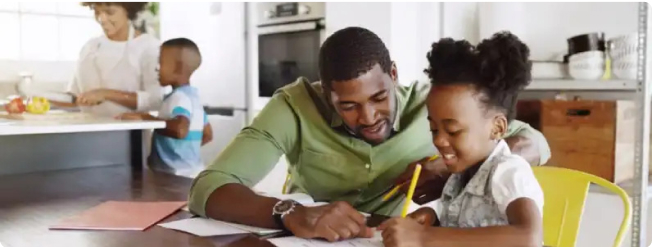Find out if you could be a foster carer
In a few simple questions, you’ll know if you’re suitable to apply to become a foster carer.
Unaccompanied children include asylum seekers, refugees and migrants. Foster carers need the usual skills – like patience and empathy – and should be prepared to support their foster child in recovery from trauma and the practicalities of learning English.
Unaccompanied children have arrived in the UK without parents or close family members to look after them.
Local authorities are responsible for finding foster parents to care for them until they are 18, or sometimes beyond this age under the Staying Put foster care programme. We work with local authorities to fulfil this requirement by recruiting, training and supporting foster carers with the right skills.
Many unaccompanied children are from war-torn countries and might have witnessed persecution, torture, violence or death. Some are orphans or have become estranged from their families due to abuse. They might speak good English or none at all. They are far from everyone and everything they know.
Children that have travelled and/or been trafficked to the UK will have likely experienced physical, emotional and/or sexual abuse along their journey, which compounds trauma they likely experienced in their native countries.
Like all foster children, it’s difficult to generalise on the needs of unaccompanied children. However, a high proportion will require counselling or therapy so they can process issues like grief, trauma, and post-traumatic stress disorder (PTSD).
Due to their extreme experiences, some unaccompanied children can exhibit very challenging behaviours and rely on the experience and skills of our foster carers and the wider agency teams.
They will undoubtedly need support through the process of applying for permission to stay in the UK, and the success or failure of their application. In addition, unaccompanied children need support in learning how to live in a different society and culture than they are used to, to feel safe practising their faith, and reclaim their childhoods.
They might need extra support to improve or learn to read and write English, and remove any barriers to their education.
Fostering unaccompanied children demands the usual skills and personal qualities of any fostering placement – like empathy and patience.
Yet, caring for a child who might be from a different culture and religion, who speaks a different language – and who might have experienced things you can’t imagine – presents additional challenges.
Foster carers should support unaccompanied children to build their relationships within their local community (such as school, clubs and activities). They should also support them to meet other young people of the same cultural and religious backgrounds, and to attend places of worship.
While it presents unique challenges, being part of the story, transformation and future of an unaccompanied child is special. It becomes your story, transformation and future – like many of our more complex fostering roles.
Our foster carers don’t do this alone: National Fostering Group provides excellent support, training and other benefits including an enhanced fostering allowance. You have a dedicated Supervising Social Worker who is backed by an experienced local team, access to 24/7 advice and excellent training delivered in your area. We give you all the support you need to be your best in your role.
If you think this type of fostering would suit you, please enquire now.
Lynda and Colin’s first foster child was a 14-year-old boy from Afghanistan who was keen to learn English. He stayed with the couple for 12 years, during which time he graduated with a degree in law. He moved out in 2021 to live independently in a flat – just around the corner!
The couple have looked after many other asylum seekers too. Lynda said: “At first it can be hard for young asylum seekers to adjust to full-time education. Also, many asylum seekers suffer from PTSD and nightmares and it can take a while for them to settle.”
Read the full story of Lynda and Colin’s experience of accompanied child fostering.

